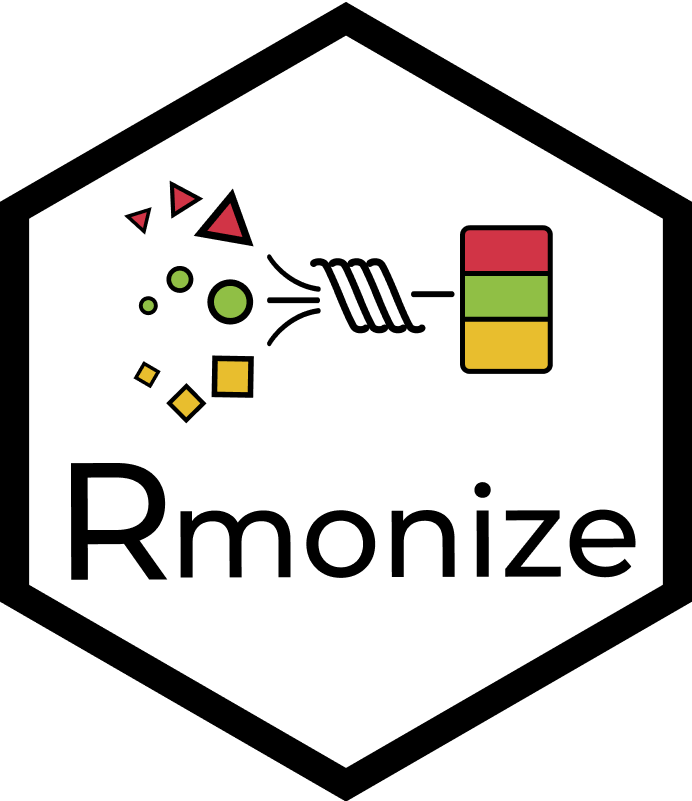Tools for Data Harmonization.
 Tools for Data
Harmonization
Tools for Data
HarmonizationHarmonizing data (achieving or improving inferential equivalence of data collected by separate studies) can be required in epidemiological research but is methodologically and technically challenging. Data collected by separate studies are typically heterogenous, and decisions on if and how to process data must be made, executed accurately, and documented in a transparent manner. Rmonize is an R package developed by Maelstrom Research to address some of the key challenges in this process and facilitate streamlined, reusable, and well documented harmonization pipelines.

Get an overview of processing with Rmonize and links to resources available for each step on the Process page.

For a quick start to using the package, see the vignettes Install your working environment and a Simple example of data processing with Rmonize.
